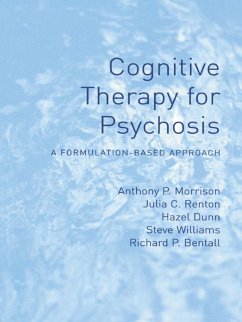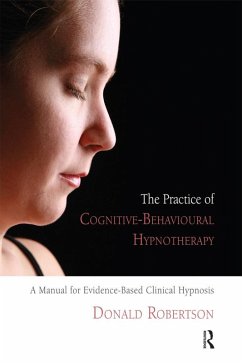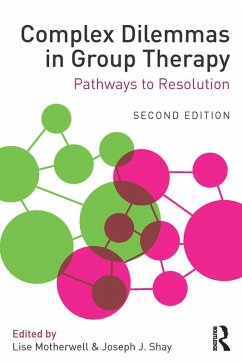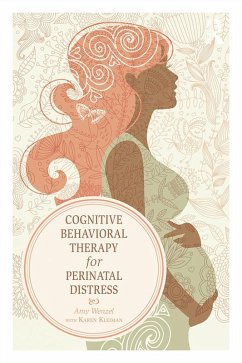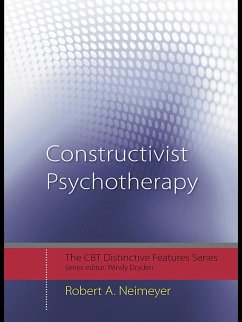
Beck's Cognitive Therapy (eBook, ePUB)
Distinctive Features 2nd Edition
Versandkostenfrei!
Sofort per Download lieferbar
18,95 €
inkl. MwSt.
Weitere Ausgaben:

PAYBACK Punkte
9 °P sammeln!
Beck's Cognitive Therapy explores the key contributions made by Aaron T. Beck to the development of cognitive behaviour therapy.The book describes the development of the unique model of therapy developed by Professor Aaron. T. Beck and his daughter, Dr. Judith. S. Beck. The first part on theory explains how the Becks understand psychological problems. The second part on practice describes the main methods and skills that have evolved in cognitive therapy.Updated throughout to include recent developments, this revised edition of Beck's Cognitive Therapy will be ideal for both newcomers and expe...
Beck's Cognitive Therapy explores the key contributions made by Aaron T. Beck to the development of cognitive behaviour therapy.
The book describes the development of the unique model of therapy developed by Professor Aaron. T. Beck and his daughter, Dr. Judith. S. Beck. The first part on theory explains how the Becks understand psychological problems. The second part on practice describes the main methods and skills that have evolved in cognitive therapy.
Updated throughout to include recent developments, this revised edition of Beck's Cognitive Therapy will be ideal for both newcomers and experienced practitioners.
The book describes the development of the unique model of therapy developed by Professor Aaron. T. Beck and his daughter, Dr. Judith. S. Beck. The first part on theory explains how the Becks understand psychological problems. The second part on practice describes the main methods and skills that have evolved in cognitive therapy.
Updated throughout to include recent developments, this revised edition of Beck's Cognitive Therapy will be ideal for both newcomers and experienced practitioners.
Dieser Download kann aus rechtlichen Gründen nur mit Rechnungsadresse in A, B, BG, CY, CZ, D, DK, EW, E, FIN, F, GR, HR, H, IRL, I, LT, L, LR, M, NL, PL, P, R, S, SLO, SK ausgeliefert werden.





